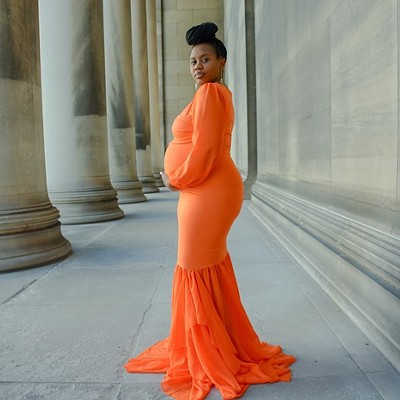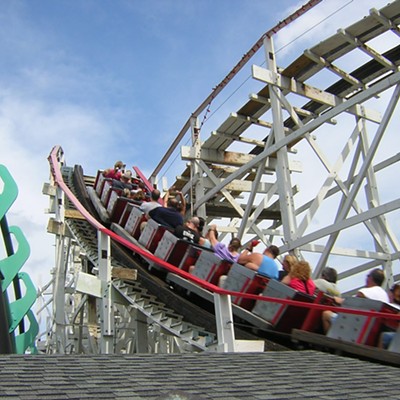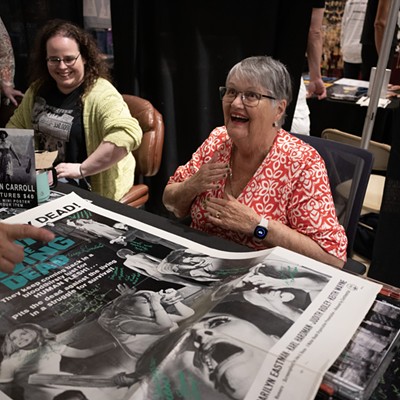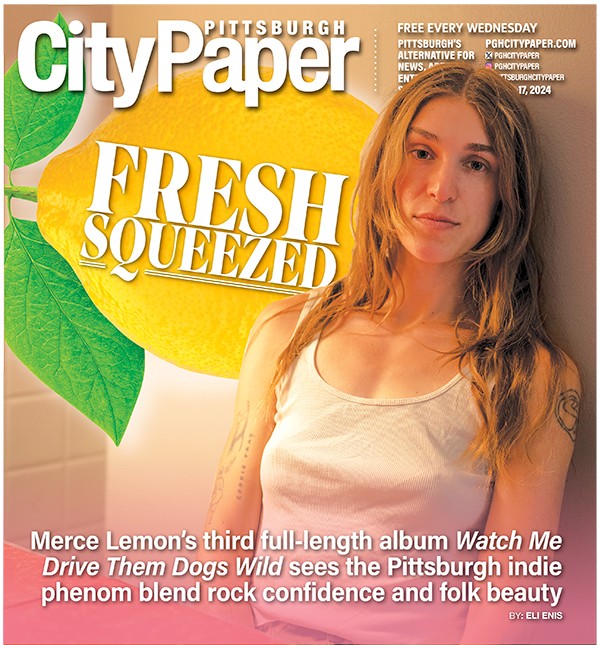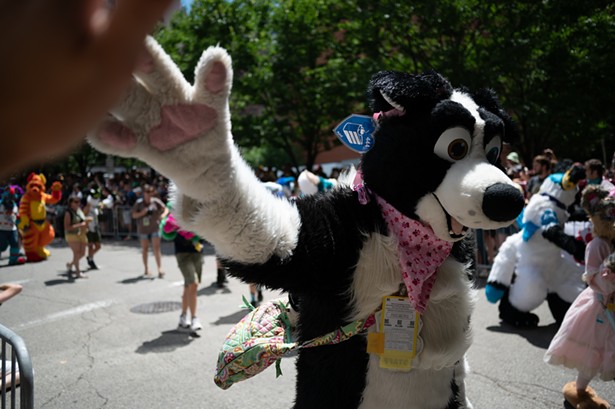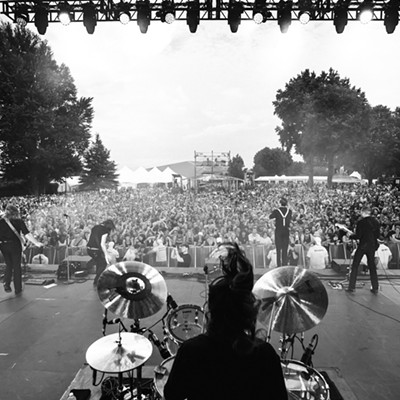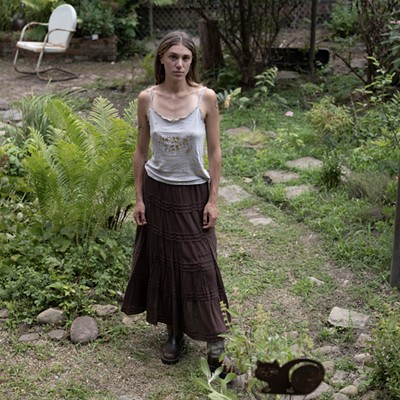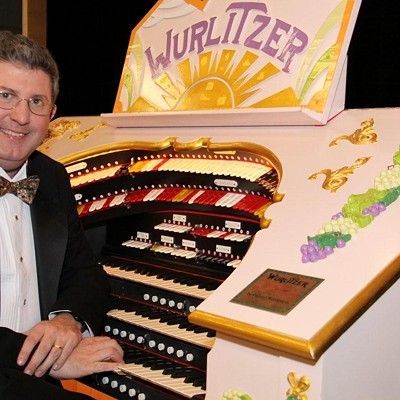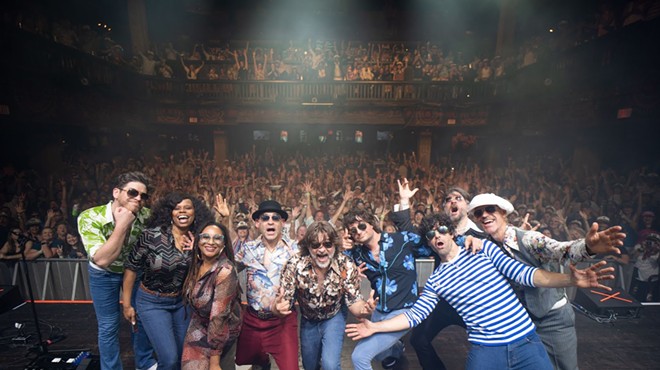Hustle and Flow opens with a monologue from D.Jay (Terrence Howard), a sweaty Al Sharpton-haired pimp who looks to be one trick away from poverty. In it, he reveals how the game is sold and not told. He's running it down to his No. 1 ho, Nola (Taryn Manning -- imagine Jodie Foster in Taxi Driver, but with long blond micro-braids), expounding on the difference between man and dog. According to the philosophical pimp, man has a capacity to learn from mistakes and history, unlike his four-legged best friend.
The spiel ends just in time for a big, hoggy haystack of a john to pull up, beckoning Nola's services. But D.Jay's in the driver's seat, meaning the transaction must first pass through him. Scenes later, a scruffy, black john-john pulls up to D.Jay's ride, inspects Nola's goods and passes.
This is the New South. It's the White Citizens' Council's worst nightmare made reality: Their precious, pure white pussy has become so devalued that even niggers wouldn't want it -- and for them to retrieve it, they'd have to buy it back from the niggers they detest.
Written and directed by relative newcomer Craig Brewer (he made the indie crime flick The Poor and the Hungry in 2000), Hustle and Flow captures this steamy, funky setting deep in the Memphis slums like no other film, except the straight-to-bootleg hood dramas released by rap groups like Three 6 Mafia (DJ Paul of Triple 6 makes a cameo in Hustle and Flow and was a rap consultant on the film). Brewer doesn't have to paint building walls red like Spike Lee did in Do the Right Thing for his audience to get the heat: You see the cast bakin' under that Confederate sun and the movie theater's air-conditioning becomes irrelevant.
In this blues-suite script, D.Jay is a po' but not-yet-broke pimp whose church-pew epiphany spurs his transformation into the next BET Uncut rap hopeful. The real story, however, is about the three women in his stable, who prove him to be the man he's hardly convinced he is. Besides Nola, there's Shug (Taraji Henson), his ho on maternal leave, and Lexus (Cleveland actress Paula Jai Parker) who also strips on the side.
In pursuit of his rap dreams, D.Jay forges a friendship with working-class Key (Anthony Anderson), who runs a tiny audio-production outfit. This relationship is incomplete without Key's patrician wife, Yevette (Elise Neal), who helps seal the chemistry, if not the success, of her husband's production team at work on D.Jay's first wannabe hit single ... ahem, "Whoop That Trick."
When Lexus meets Yevette, it's a telling portrayal of the state of black women: Chicken Head meets Household Head, both estranged from their significant male other. While Lexus' persecutory and self-centered squawking gets her kicked out the crib, along with her baby's crib, Yevette finds herself eating dinner alone as her husband becomes immersed in D.Jay's dreams. Avoiding Lexus' fate, Yevette decides to meet her husband and his new pimp friend where they're at, coming down to help them come up. When Yevette surprise-visits her husband at D.Jay's ghetto studio with a tray of sandwiches, it's a tender scene -- perhaps overdone, but much needed amidst the crop of diaries of black-sex-wars crap that pass as movies these days.
The film's cathartic ending, and its hodgepodge of themes and tones, show that Brewer has learned much from Lee in designing a film of the black variety. Among Hustle and Flow's selling points, besides the kudos it received at Sundance, is that director John Singleton produced it. His backing makes some sense. Hustle and Flow is everything that Singleton's ridiculously stupid 2001 film Baby Boy wanted to be: a story of the struggle of the li'l ghetto boy trying to become a man with only limited and corrupted tools at his disposal, and of the role black women play -- or think they play -- in that becoming. By effectively pulling that plot off, Brewer, a white Memphis boy, embarrasses Singleton. He even becomes what the Hollywood game needs: someone besides Spike Lee who can intelligently tell a challenging black urban story without sinking too deeply into minstrelsy. 


